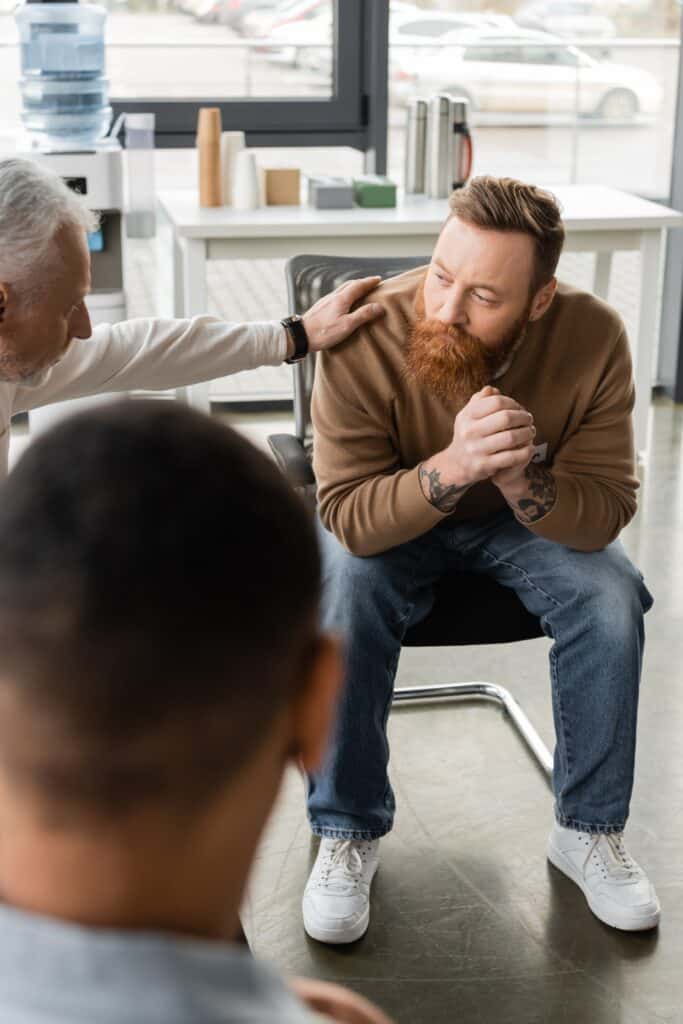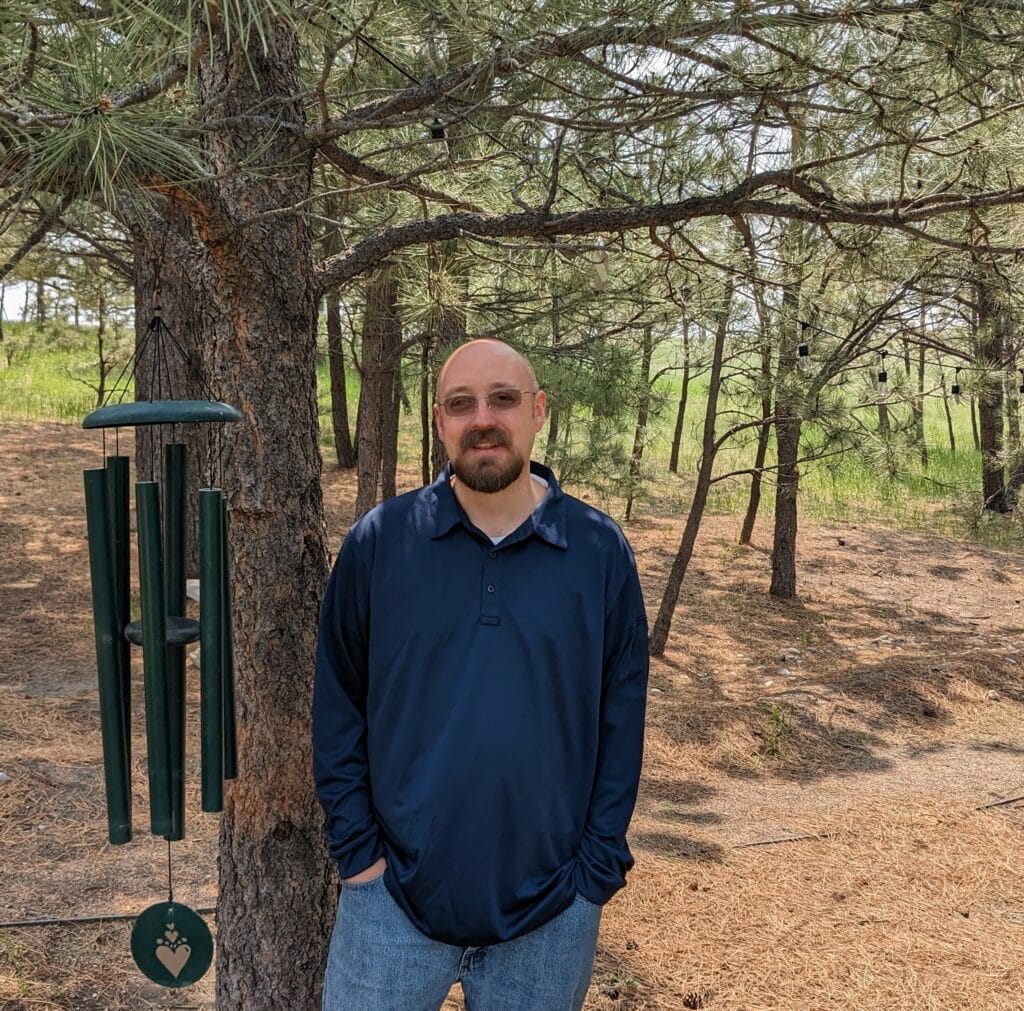CBT Therapy In Colorado
CBT in Colorado for Addiction Help
Substance abuse can co-occur with several mental health issues. Mental illness can truly be debilitating to people who struggle with substances. Some people might try to combat and overcome their issues independently, while others seek help from mental health professionals or licensed clinical social workers.
Fortunately, various effective treatment approaches and therapeutic modalities within addiction treatment deal with mental health problems. There are also different therapies and individual counseling options available to deal with mental health problems.
Our cognitive behavioral therapy (CBT) in Colorado, near Colorado Springs and Denver areas is a great solution to improve their mental health while in recovery for substance abuse or trauma.
Request a Confidential Callback
What Is CBT Therapy in Colorado?
Patients struggling with anxiety disorder and depression are the ones who most often utilize cognitive behavioral therapy. In some cases, a therapist might use CBT therapy to support their client by easing the symptoms of other mental health diagnoses. CBT is also a method of treatment that helps teach patients relaxation techniques.
A patient might also hear cognitive behavioral therapy referred to as talk therapy or psychotherapy. No matter the name used, this type of therapy works based on a few core principles. These include:
- Learned pattern behaviors are something that each patient struggles to overcome. These learned patterns of behavior are destructive and intensify the patient’s struggles.
- In most cases, the patient’s thinking is problematic and needs to be adjusted.
- CBT therapy can help patients build new skills and coping mechanisms to combat their mental health issues. These coping skills help the patient deal more effectively with daily tasks and challenges.
Our therapists offer CBT therapy in Colorado. They believe in these guiding principles and strive to provide their clients with the skills to adjust their thinking and subsequent behavior. Unlike some therapies that focus on the past, CBT examines the present and ways to change behaviors moving forward.
The family of CBT therapies includes a variety of approaches, such as:
- Dialectical Behavior Therapy (DBT)
- Exposure and Response Prevention
- Eye Movement Desensitization and Reprocessing Therapy (EMDR)
- Acceptance and Commitment Therapy (ACT)
- Prolonged Exposure Therapy
- Behavior Therapy
- Mindfulness Training
- Exposure Therapy
The therapist will use the patient’s condition and preferences to decide on the CBT therapy that will benefit the patient most. In some cases, the type of therapy might change as the patient progresses, with different approaches (such as individual therapy, family therapy, and group therapy) being used.
Men's Treatment
Learn more about our substance abuse treatment program for men in Colorado and how we can help you find long-term healing from addiction.
Residential Inpatient
We offer supportive inpatient rehab and residential treatment at our beautiful home in the scenic small town of Elizabeth, Colorado.
Medication-Assisted
For individuals struggling with substance abuse and mental health (dual diagnosis) we offer comprehensive therapeutic modalities.
What Does CBT Therapy Help With?
CBT therapy can help with a variety of different mental health disorders. Research has shown that it helps individuals manage and control their thoughts. Our trained mental health and substance abuse professionals can help individuals overcome intrusive thoughts and manage emotions with CBT therapy.
Disorders that CBT therapy helps with include:
- Depression
- Anxiety Disorder
- Panic Attacks
- Phobias
- Obsessive Compulsive Disorder (OCD)
- Posttraumtic Stress Disorder (PTSD)
- Substance Abuse
- And More
Explore Some of the Goals of Our CBT Program in Colorado
When one of our therapists and their client decide to employ cognitive behavioral therapy, they’ll set goals and milestones to ensure the therapy is helping the patient to get better. Some of the most common goals are:
The patient will be able to use the techniques and methods to change their destructive thought patterns and behave more appropriately for their overall mental health.
The patient should be able to identify how certain thought processes lead to destructive behavior. Once they identify these thought patterns, they change their thought process to react healthier to daily situations.
The patient learns to recognize their thought process and the effect on specific actions in real-time. This helps the patient understand how important it is to change their negative thought patterns to create better behavior patterns.
It’s of the utmost importance that the patient uses the techniques consistently. Each therapist will have their approach to CBT therapy and makes adjustments as the patient progresses or regresses.

Don't Let Anything Stop You From Getting Help.
We work with most major commercial insurance plans which can help cover up to 100% of the costs associated with treatment.
CBT Techniques
After setting the goals for CBT therapy, there are various methods and techniques that the therapist might encourage the patient to use. Each patient is different, and the therapist might start with one technique and switch to another to see if more progress can be made.
It’s entirely possible that the therapist might use more than one CBT method. It’s important for the patient to realize there’s a little trial and error to find the most positive results. Some common techniques include:
The patient and the therapist will look at stressful situations for the patient. Once the patient has learned some coping techniques, the patient will wade into a stressful situation. The goal is for the patient to use their new coping methods to react in a new, positive manner.
This is part of talk therapy, and the therapist asks the patient to describe themselves. As the patient falls into the pattern of negative thinking and expresses unfavorable opinions about themselves, the therapist works with them to redefine themselves.
Most therapists will ask the patient to keep a journal in between sessions. The patient uses the journal to document any stressful situations, their thoughts, and the behaviors they exhibited. The journal will also be used for the patient to explore ways they might create a different outcome with a new thought process.
The patient and therapist examine stressful situations and the patient’s reaction to them. They’ll explore ways the patient could have approached the activity in a new manner with a new thought process to make the situation less stressful.
The therapist asks the patient questions about themselves and stressful situations in a controlled environment. As the patient answers these questions, the therapist encourages the patient to look at their answers in a new light or to put a more positive spin on their answers. This way, the patient can find new ways to overcome destructive thought patterns.
The leadership and staff were committed to my success.
Paul is a man of integrity which flows through his team. I have been to other recovery programs and HPR stands far above them all. The small group structure offers a more intimate and personalized experience. This was so much more beneficial to my recovery than facilities preaching a "one-size-fits-all" solution to larger and fragmented groups. It was like having personal and knowledgeable therapists dedicated to me for a full month! They went out of their way to understand the root of my challenges and construct a path for improvement that is unique and relatable to me. This was a huge benefit!
Jay C
It saved my life, in every sense.
I spent a month at Healing Pines Recovery. The actual location itself is unreal. A beautiful cabin lodge, with gorgeous scenery. The rooms are large, queen beds, very comfortable! Great bathrooms with great showers! There is a pool table, slam jam, (Christine! 😉 frisbee golf, and daily access to a nearby gym. The property also has a pickle ball court that was used daily, Zoey the counselor beat us men constantly!
Clay M
My experience with Healing Pines Recovery has been wonderful.
My husband was their client, and they helped him be able to help himself. He is doing amazing! I think the combination of counseling, physical labor, meditation, AA, and just the beauty of the place itself all had a very positive impact on him. They really cared about him, and that did not stop just because he came home. Also they have counseling for the families and it has really helped me a lot. Heather is awesome! I thank God that we had them in our lives when we were most vulnerable.
Susan M
We wanted to share our gratitude to the staff.
Our son was under the care of Healing Pines recently and we wanted to share our gratitude to the staff. There were many challenges in his pursuing treatment, and thankfully Paul and Heather C helped us navigate all of them skillfully with patience and compassion.
Jim E
You'll get your life back!
Healing Pines Recovery is/was instrumental in setting me up for long term success in my recovery journey. I've been to treatment centers in the past and HPR is nothing like anything I've attended before. They're very small, intimate, and hands-on approach to recovery was exactly what I was looking for when seeking treatment. I knew that a large, one size fits all program like those offered by many other treatment centers in Colorado wouldn't provide me with the help I desperately needed. Paul and his Team are incredible and I would highly recommend HPR to anyone who needs help starting their recovery journey. Big shout out to James for all of his guidance during my time at HPR. His grace, knowledge, understanding, and direction were/are key to my continued success in recovery. One HUGE piece of the puzzle I love is the after care I've received from HPR... I am in constant contact with Paul, James, and many other staff members through the their alumni programs and it has helped me so much with life after HPR. This program was truly a miracle in my life and I know it will be for many other men struggling with addiction and/or alcoholism. You'll get your life back!
Nicholas P
This is truly a great recovery facility.
My learning experience here was something I’ll take with me throughout my whole life. The staff here will always be a part of my family and I am beyond thankful for everything they have done and continue to do for my well-being.
Gunnar P
I can't speak more highly of Healing Pines Recovery & Addiction Center.
It is located in a beautiful Colorado location with lots of outdoor activities and fresh air. They have a very knowledgeable and professional staff that goes above and beyond to meet your needs.
Riley K
I couldn’t have been at a more amazing place to begin this journey.
Seriously an amazing place. Everything from how beautiful the house and the property it sits on down to every person staffed there was nothing less than perfect. More than highly recommended in every sense. If you’re reading this and trying to find the right place for treatment and recovery I would absolutely look no further. Everyone’s recovery is different and we all need a comfortable place with people we can trust through this battle, healing pines understood that everyone’s path is different and they 100% cater to that. I couldn’t have been any luckier with finding Healing Pines. I won’t go any deeper and start to thank everyone there individually, But I want to express my gratitude to everyone on the HEALING PINES TEAM. Without you all, my path in sobriety would not look anywhere near the way it looks today. Seriously from the bottom of my heart thank you!
James M
Begin Your Transformation
Contact our caring team today to learn more about our program.
Explore CBT Therapy in Colorado
When a person struggles with anxiety or depression, it can seem almost impossible to reach out for help even when they know they need it. At Healing Pines Recovery, we offer CBT in Colorado Springs that allows patients to take the steps necessary for recovery.
Reach out to us to learn more about our program and take the next step.
Schedule a Tour Today
Come discover why Healing Pines Recovery is your top choice for men’s addiction treatment.
Begin Your Journey & Escape Addiction
The first step can be the hardest. Fill out the form or call us at (720) 575-2621. You will be connected with a Healing Pines Recovery specialist who can answer your questions and help you get started.
Let Us Help You
Speak to Someone Right Now






